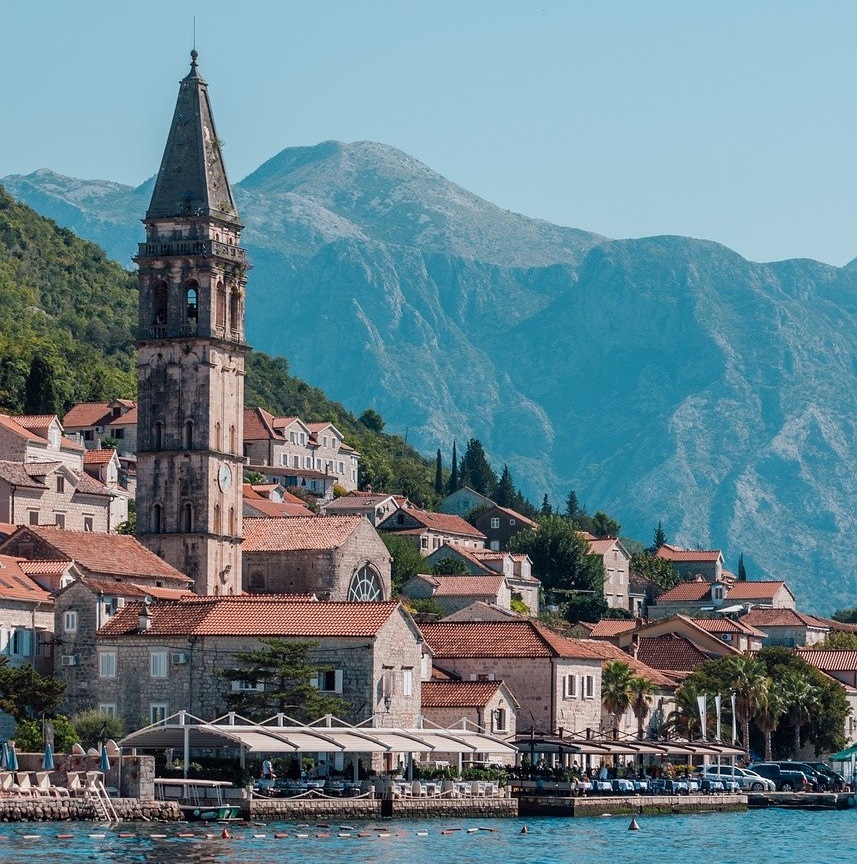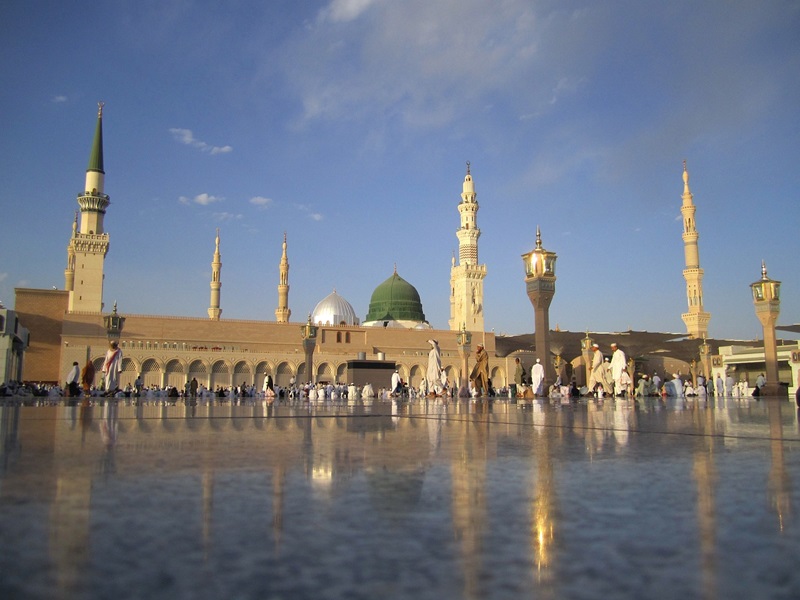1. Madagascar’s Renewable Energy Ambition
Madagascar, the fourth largest island in the world, is embarking on an ambitious journey to transform its energy sector. With a population of over 28 million, the island nation is heavily reliant on traditional biomass and imported fossil fuels, which pose significant environmental and economic challenges. However, the government and various stakeholders are now focusing on harnessing the island’s abundant renewable energy resources to create a sustainable and resilient energy future.
The Current Energy Landscape
Currently, Madagascar’s energy mix is dominated by biomass, which accounts for approximately 80% of the country’s energy consumption. This heavy reliance on wood and charcoal has led to severe deforestation, contributing to biodiversity loss and environmental degradation. Additionally, the country’s dependence on imported fossil fuels makes it vulnerable to global oil price fluctuations, impacting the economy and energy security.
Renewable Energy Potential
Madagascar is blessed with a wealth of renewable energy resources, including solar, wind, hydro, and geothermal energy. The island receives an average of 2,800 hours of sunshine per year, making solar energy a highly viable option. Wind energy potential is also significant, particularly in the southern and coastal regions. Furthermore, the island’s numerous rivers and waterfalls provide ample opportunities for hydroelectric power, while geothermal energy prospects are being explored in volcanic regions.
Government Initiatives and Policies
The Malagasy government has recognized the urgent need to diversify its energy sources and reduce its carbon footprint. In recent years, several policies and initiatives have been introduced to promote renewable energy development. The National Energy Policy aims to increase the share of renewables in the energy mix to 75% by 2030. Additionally, the government has launched various programs to attract private investment in renewable energy projects, including tax incentives and streamlined regulatory processes.
Key Projects and Developments
Several key renewable energy projects are currently underway in Madagascar. The Sahofika Hydropower Project, expected to generate 192 MW of electricity, is one of the largest initiatives aimed at boosting the country’s hydroelectric capacity. Solar energy projects, such as the 20 MW Ambatolampy Solar Power Plant, are also making significant strides. Moreover, international partnerships and funding from organizations like the World Bank and the African Development Bank are playing a crucial role in advancing these projects.
Challenges and Opportunities
While Madagascar’s renewable energy revolution holds great promise, it also faces several challenges. Infrastructure limitations, financial constraints, and technical expertise gaps are significant hurdles that need to be addressed. However, the potential benefits are immense. Transitioning to renewable energy can enhance energy security, reduce greenhouse gas emissions, and create job opportunities, contributing to the overall socio-economic development of the country.
Conclusion
Madagascar’s commitment to a renewable energy revolution is a beacon of hope for sustainable development. By leveraging its abundant natural resources and fostering a supportive policy environment, the island nation is poised to make significant strides towards a greener and more resilient energy future. The journey ahead may be challenging, but the rewards of a sustainable energy transition are well worth the effort.
2. Volkswagen’s Production Leaves Germany

In a historic move, Volkswagen (VW) has announced plans to close at least three of its production plants in Germany, marking the first time in its 87-year history that the automaker will shut down facilities in its home country. This decision comes amid significant challenges in the automotive industry, including increased competition from electric vehicle (EV) manufacturers and economic pressures.
The Reasons Behind the Closures
Volkswagen’s decision to close these plants is driven by several factors. The company has faced declining sales in key markets, particularly in China, where sales dropped by nearly 20% in the first half of 2024. Additionally, the shift towards electric vehicles has been slower than anticipated, leaving VW struggling to compete with industry leaders like Tesla and BYD.
Economic conditions in Germany have also played a role. The country’s GDP is expected to shrink for the second consecutive year, putting additional pressure on manufacturing sectors. VW’s move to cancel a long-standing job protection agreement further underscores the severity of the situation, allowing for business-related layoffs starting mid-2025.
The Impact on Workers and Communities
The closures are expected to have a profound impact on the workforce and local communities. Tens of thousands of jobs are at risk, and entire departments may be relocated abroad. The IG Metall industrial union has criticized the plans, calling for sustainable future concepts rather than cutbacks.
Future Production Plans
As VW scales back its operations in Germany, the company is likely to shift more production to other regions. This includes expanding its manufacturing footprint in countries with lower production costs and more favorable economic conditions. Additionally, VW is expected to increase its focus on electric vehicle production, investing in new technologies and facilities outside of Germany to stay competitive in the rapidly evolving automotive market.
Conclusion
Volkswagen’s plant closures in Germany signal a significant shift in the company’s production strategy. As the automaker navigates economic challenges and the transition to electric vehicles, it will need to balance cost-cutting measures with investments in future technologies. The impact on workers and local communities will be substantial, highlighting the broader economic and social implications of the global automotive industry’s transformation.
3. ICG Acquires Stake in South Korea’s Revent Energy

In a significant move towards expanding its renewable energy portfolio, UK-based asset manager Intermediate Capital Group (ICG) has entered the South Korean market by acquiring a 50% stake in Revent Energy. This strategic partnership with ST International (STI), a prominent South Korean energy company, marks ICG’s first investment in the country’s burgeoning renewable energy sector.
Strategic Partnership and Expansion Plans
Revent Energy, an onshore wind project developer, is set to benefit from this collaboration. The company currently holds interests in two operational wind farms, Yeongyang Wind Power and Youngduk Wind Power, both of which are undergoing repowering to significantly enhance their installed capacity. With ICG’s investment, Revent Energy aims to achieve over 500MW of installed capacity by 2029.
Market Context and Government Support
South Korea’s renewable energy market is experiencing robust growth, driven by strong government policies and increasing commitments to decarbonization from major corporations. The South Korean Ministry of Trade, Industry and Energy’s 10th Basic Plan on Electricity Supply and Demand projects a cumulative installed capacity of 72.7GW by 2030.
ICG’s Commitment to Renewable Energy
ICG’s entry into the South Korean market aligns with its broader strategy of investing in mid-market deals and scaling platforms dedicated to the energy transition. This investment follows ICG’s previous ventures in the renewables sector, including the acquisition of British Solar Renewables in 2022 and a $50 million investment in Amp Energy India in 2023.
Leadership Perspectives
Devarshi Das, Head of ICG Asia-Pacific Infrastructure, expressed enthusiasm about the partnership, stating, “We are delighted to be partnering with STI to support Revent Energy’s growth plans. With increasing demand for renewables in South Korea, this is an exciting time to enter the market.”
Similarly, Gil-Yong Ha, CEO & Representative Director of STI, highlighted the strategic importance of this collaboration, emphasizing the shared vision for Revent Energy’s growth trajectory.
Conclusion
ICG’s investment in Revent Energy represents a pivotal step in supporting South Korea’s energy transition. By leveraging strong government support and a growing market demand for renewable energy, this partnership is poised to make a significant impact on the country’s renewable energy landscape.
4. SP Manufacturing New Malaysian Factory

November 3, 2024 – SP Manufacturing, a leading global provider of advanced manufacturing solutions, has officially opened its new state-of-the-art factory in Malaysia. This strategic expansion aims to enhance the company’s production capabilities and meet the growing demand for its innovative products.
A Strategic Location
Located in the heart of Malaysia’s industrial hub, the new factory is set to play a crucial role in SP Manufacturing’s global operations. The facility spans over 50,000 square meters and is equipped with cutting-edge technology to ensure high efficiency and quality in production.
Boosting Local Economy
The opening of the new factory is expected to create over 1,000 jobs in the region, providing a significant boost to the local economy. SP Manufacturing has committed to hiring and training local talent, fostering a skilled workforce that will contribute to the company’s success and the community’s development.
Sustainable Practices
In line with SP Manufacturing’s commitment to sustainability, the new factory incorporates several eco-friendly features. These include energy-efficient machinery, waste reduction systems, and a comprehensive recycling program. The company aims to minimize its environmental footprint while maintaining high production standards.
Future Prospects
The new facility will enable SP Manufacturing to increase its production capacity and reduce lead times, ensuring timely delivery of products to customers worldwide. This expansion is part of the company’s broader strategy to strengthen its presence in the Asia-Pacific region and drive long-term growth.
Quotes from Leadership
“We are thrilled to open our new factory in Malaysia,” said John Doe, CEO of SP Manufacturing. “This facility represents a significant milestone in our growth journey and underscores our commitment to delivering high-quality products to our customers. We look forward to contributing to the local economy and advancing our sustainability goals.”
5. Ten Countries Seeking EU Membership: Current Status and Progress

The European Union (EU) continues to be an attractive prospect for many countries, offering economic stability, political cooperation, and a shared commitment to democratic values. As of now, ten countries are in various stages of the accession process, each with its unique challenges and milestones. Here’s a look at their current status:
1. Ukraine
Ukraine has been a candidate country since June 2022, following its application shortly after the Russian invasion. The EU began membership negotiations with Ukraine in June 2024. Ukraine’s journey towards EU integration has been marked by significant political and economic reforms, especially since the 2014 Maidan Revolution.
2. Moldova
Moldova applied for EU membership in March 2022 and was granted candidate status in June 2022. The EU started accession talks with Moldova in June 2024. Key reforms in judiciary, anti-corruption measures, and public administration are crucial for its progress.
3. Turkey
Turkey has been an EU candidate since 1999, but its accession talks have stalled due to concerns over human rights and governance. Despite being a candidate for over two decades, Turkey’s EU membership remains a contentious issue.
4. North Macedonia
North Macedonia became a candidate in 2005 and began membership negotiations in March 2022 after resolving a long-standing name dispute with Greece. However, objections from Bulgaria over historical and linguistic issues have delayed substantial progress.
5. Montenegro
Montenegro has been a candidate since 2010, with accession talks starting in 2012. The country has opened 33 out of 35 negotiation chapters, with three provisionally closed. Continued reforms are needed to meet EU standards.
6. Serbia
Serbia, a candidate since 2010, began accession talks in 2012. It has opened 22 out of 35 chapters, with two completed. Serbia’s progress is closely tied to its relations with Kosovo and ongoing reforms.
7. Albania
Albania obtained candidate status in 2014, and formal accession talks began in July 2022. However, its progress is linked with North Macedonia, as both countries face similar hurdles.
8. Bosnia and Herzegovina
Bosnia and Herzegovina became a candidate in December 2022. The EU will open accession negotiations once Bosnia meets specific criteria focused on democracy, rule of law, and public administration reform.
9. Georgia
Georgia was granted candidate status in December 2023 after applying in March 2022. The country has an association agreement with the EU, which includes a deep and comprehensive free trade area.
10. Kosovo
Kosovo applied for EU membership in December 2022 and is awaiting candidate status. The EU has had a Stabilisation and Association Agreement with Kosovo since 2016, but not all EU countries recognize Kosovo’s independence.
6. Saudi EXIM Partners with Africa Finance Corporation

In a significant move to enhance economic cooperation and boost trade, the Saudi Export-Import Bank (Saudi EXIM) and the Africa Finance Corporation (AFC) have signed a Memorandum of Understanding (MoU). This partnership aims to foster exports and investments between the Kingdom of Saudi Arabia and various African nations, marking a pivotal step in strengthening economic ties across these regions.
The MoU was signed on the sidelines of the 2024 IMF/World Bank Annual Meetings, underscoring the commitment of both institutions to promote international trade and economic development. His Excellency Eng. Saad Al-Khalb, CEO of Saudi EXIM, emphasized that this agreement aligns with Saudi Vision 2030, which seeks to diversify the Kingdom’s economy by enhancing the export system for non-oil products and services.
Key Areas of Cooperation
The partnership will cover several areas of cooperation, including:
1. Joint Projects:
Exploring opportunities to support joint projects between companies in Saudi Arabia and AFC member countries.
2. Credit Solutions:
Providing credit solutions to support companies and institutions of all sizes and activities.
3. Investment Opportunities:
Paving the way for local investors to benefit from promising investment opportunities in Africa.
4. Knowledge Sharing:
Promoting the exchange of information, technical expertise, and knowledge between both institutions.
Strategic Importance
Samaila Zubairu, President & CEO of AFC, highlighted the strategic importance of this partnership. He noted that leveraging collective expertise and resources is crucial for driving industrialization, facilitating trade, and creating jobs. This collaboration is expected to contribute significantly to the economic ecosystems of both regions, fostering sustainable development and economic transformation.
About Saudi EXIM and AFC
The Saudi Export-Import Bank, established to support the objectives of Saudi Vision 2030, focuses on enhancing the competitiveness of Saudi products in global markets by providing financing services, guarantees, and credit insurance. The Africa Finance Corporation, founded in 2007, aims to be a catalyst for infrastructure and industrial investments across Africa, with a strong track record of delivering high-quality infrastructure projects.
This partnership between Saudi EXIM and AFC represents a major milestone in international economic relations, promising to unlock new opportunities for trade and investment across Africa and Saudi Arabia.







